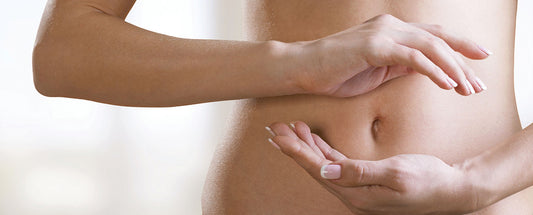Evolving Diets & It's Impact On Nutrition

The way we eat and what we eat has changed radically over time. Remember when you were a child and what you ate was whatever was placed in front of you at dinner time? These days we are inundated with new food options including hybrid vegies, nut ‘mylks’, green smoothies, plant based meat alternatives and even plant based ice creams!
We also have numerous ways to get our food delivered, whether it be junk food, ready to eat meals or even meal kits delivered to our door, we’ve definitely moved on from the meat and three veg type dinners of old.
To see how far we’ve come in regard to how our food habits have changed, let’s look at where we began.
Hunters and gatherers
The discovery of ancient tools along with the remains of human settlement tells us that early hunters and gatherers existed as far back as 2 million years ago. Most hunters and gatherers lived in small groups which ensured that there was enough food and supply for everyone. As they hunted and gathered their food, there would be times when they would have more than enough for everyone, particularly after a big kill or a change in season when edible plants were more abundant. There were also leaner times when food wasn’t as easy to come by. These were hard times when food was seen as a source of energy, eaten purely to fuel the body to help carry on for another day, no one could afford to be picky.
Neolithic Revolution
The Neolithic Revolution is often referred to as the birth of agriculture, when early humans began to harness the environment for their own gains, moving more toward agriculture and settlement and away from the unpredictable and often unreliable ways of hunting and gathering. This transition, changed human existence by encouraging larger populations and providing people with the chance to accumulate food stores. A more reliable source of food meant that some people now had the time to spend on other activities besides hunting, such as creating tools, crafts and other items of value, leading to the early beginnings of trade and markets.
Industrial Revolution
The Industrial Revolution saw enormous changes in how foods were produced along with the increased efficiency in overall manufacturing processes. Large scale machinery now enabled farmers to grow much more than ever before, synthetic fertilisers and chemical pesticides were introduced resulting in better food security and increased food diversity. Food was now easier to access and required less effort to obtain it, resulting in lowered food prices and better availability.
Refined and processed foods
Unfortunately, not everything about the industrial revolution was positive, along with the factories and machinery came far reaching changes to the production and consumption of food. Along with improved efficiency in food production came refined grains and more heavily processed foods. These new versions of foods were often lower in vitamins and minerals than what was consumed previously. Food became cheaper, often easier to access and in most cases, more calorie dense. The way we ate also changed, breakfast became a normalised meal meant to give energy to those who were heading off to work in the factories. Lunch became a packed meal as most workers worked far away from home and needed to take food with them as they were unable to eat at home as they had in the past. Lunch rooms, food carts and restaurants soon became the norm as the world began to change in response to new labour developments and technology.
While changes in economic development, food security and improved living conditions have made life significantly easier for most of the world, it has also come with its own burdens.
Generations ago, the average person would obtain the majority of their daily calories from vegetables, grains and if they were lucky enough, meat. Industrialisation has seen this basic diet veer towards a more convenient and highly processed and unfortunately, often nutrient deficient one.
It’s no secret that people are getting larger, the average person weighs much more today than they did one or two hundred years ago. Overnutrition is a form of malnutrition which has arisen over the years as our food habits have changed. The overconsumption of nutrients leading to weight gain and associated health issues has escalated as we move further away from food in its natural form, favouring the fast, convenient options we have become accustomed to in modern times.
Many factors have swayed our modern day eating practices including new cultural influences, food intolerances and allergies, trends, social media influencers and the list goes on. What hasn’t changed are the nutrients that the body will always need to keep healthy and functioning at its best.
Macro and Micronutrients
Our bodies require a constant stream of nutrients to help keep us operating efficiently. These nutrients can be classified into two groups called macronutrients and micronutrients. Both groups are important for various health reasons. Macronutrients are those that help provide us with energy while micronutrients help to keep us healthy and enable us to digest the macronutrients.
Micronutrients
Micronutrients are simply the vitamins and trace minerals that are needed to fuel the body, they are necessary for many functions including energy production, immune function and many other processes carried out by the body every day. We only need small amounts of micronutrients, which is why they are generally measured in milligrams or micrograms. These nutrients are those which are not naturally produced within the body and therefore they must be obtained through the diet. Micronutrients are one of the major groups of nutrients required by the body and can be further classified into two vitamin groups, water soluble and fat soluble vitamins. Water soluble vitamins are those such as B vitamins which are easily lost through bodily fluids and may need to be replenished daily. Fat soluble vitamins such as vitamins A,D, E and K may be stored in the body and drawn upon as the body requires them. Good sources of water and fat soluble vitamins are green leafy vegetables, fruit, lean meats, dairy products, nuts and seeds. Good sources of minerals can be found in foods such as nuts, seeds, seafood, cruciferous vegetables such as broccoli, eggs, tropical fruit such as bananas and mangoes, green leafy vegetables and avocados.
Macro ingredients
While micronutrients are nutrients which are only required in small amounts, macronutrients are needed in relatively larger amounts in order to keep the body functioning in good health. Macronutrients provide the body with energy in the form of calories and are known as fats, proteins and carbohydrates, generally making up the bulk of the calories and fibre from the foods that we eat. It is important to have a balanced intake of all three vital nutrients as each is as important as the next with vastly different roles.
Protein
Protein is made up of smaller building blocks called amino acids which are joined together forming long chains. The body needs protein to grow and maintain tissue which naturally builds up and breaks down as normal part of the functioning of the body. Different stages of life may require an increased need for protein such as during pregnancy, illness or injury, or for athletes or the elderly.
Protein is required for digestion, energy production, blood clotting, muscle contraction and also plays a large part in our immune system. Some proteins such as keratin, collagen and elastin help to provide structure to cells and tissues such as hair, skin, nails, and bones and ligaments.
Protein rich foods tend to help keep us fuller for longer and good sources of protein include lean meat, fish, eggs, seafood, nuts, beans and tofu.
Carbohydrates
Carbohydrates are an essential part of our diet, in fact much of the world relies on carbohydrates as their major source of energy, rice and potatoes are good examples of this. The body uses carbohydrates to produce glucose which is the body’s preferred energy source. The brain requires glucose as its main source of fuel. The body is able to store excess glucose as glycogen within the liver and muscles. The body then draws on these stores when needed.
Ideally, the carbohydrates in our diet would come from wholegrains, beans, fruit and vegetables. These complex carbohydrates contain vitamins, minerals, fibre and other important plant nutrients needed to maintain health. Refined carbohydrates such as white bread, soft drinks and sugary snacks are often easy to digest and generally low in nutrients and fibre, providing calorie dense options with little to offer in terms of nutritional benefits. Try to get your carbohydrates from good food sources such as brown rice, quinoa, oats and of course, plenty of fruit and vegetables, nuts and seeds.
Fats
Fats are vital for the healthy functioning of the human body in many ways. Fats play an important role in keeping us warm, protecting our organs and providing us with energy. Fats also enable the body to store fat-soluble vitamins A,D,E and K which are stored in the liver and fatty tissues.
Fats are also used to build and insulate nerve tissue, without fat our body could not communicate messages from the brain to the rest of the body effectively.
Fats form a structural part of the cell membrane which allows the exchange of nutrients between the cell and the fluid outside of the cell. The integrity of the cell membrane is important to ensure that the cells works efficiently. The saying ‘you are what you eat’ is particularly applicable in regard to what type of fat you eat. Fats which are beneficial to the body can be obtained from foods such as oily fish, avocados, nuts and seeds, these fats are classed as monounsaturated and polyunsaturated fats. These types of fats will help to maintain healthy cell membranes. Trans fats are detrimental to health and should be avoided or at least limited as much as possible. Trans fats are primarily found in processed foods made from partially hydrogenated oil, think of foods such as fried foods, junk foods and packaged foods, avoid these foods where you can, they are not conducive to good health.
Water
Don’t forget the importance of water. Water makes up between 60-70% of our body. The human body contains roughly 32 trillion cells which require water to keep them all healthy and functioning properly. The body needs water for many functions including the regulation of body temperature, the transportation of oxygen around the body and lubrication of joints to ensure that they are able to move freely. Water also plays an important role in digestion and the transportation of nutrients, without water chemical reactions could not occur and waste products would build up to toxic levels.
Keep healthy
To ensure that you get adequate amounts of both micro and macronutrients, be sure to eat a balanced diet with plenty of fresh fruit and vegetables, lean meat, whole grains, nuts and seeds and plenty of fresh water. Food is the best way to get all your nutritional needs, although this is not always possible for various reasons, if you suspect that you may need further information regarding your particular dietary requirements, please don’t hesitate to seek advice from your health professional.



